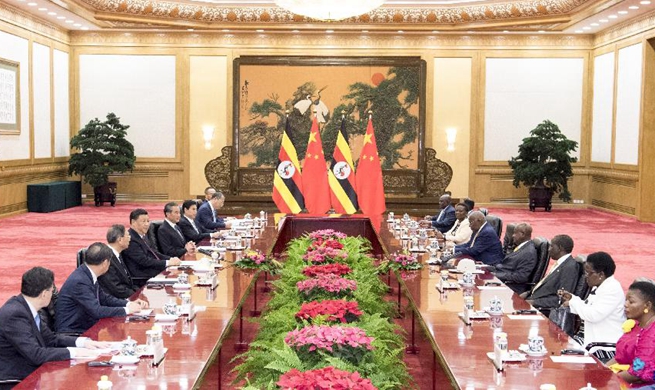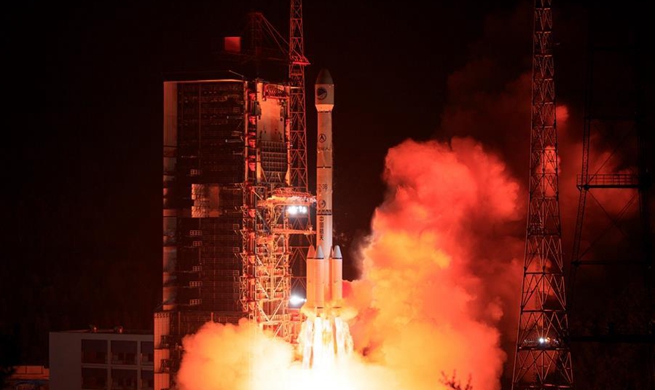BEIJING, June 25 (Xinhua) -- The central bank's recent liquidity injection, via multiple measures, will help ease funding pressures for small and medium-sized financial institutions, and maintain the stability of the interbank market, analysts have said.
The overnight Shanghai Interbank Offered Rate (Shibor), which measures the borrowing cost of China's interbank market, decreased 11.2 basis points to 1 percent Monday, the lowest level in a decade.
Normally in the middle of the year, there is a huge capital demand in the market, which leads to structural liquidity constraints, according to financial information provider Wind Info.
Shibor's fall to its lowest level in nearly 10 years, however, has shown that the interbank market maintained ample liquidity, after the repeated liquidity injections of the People's Bank of China (PBOC), the central bank.
Since the start of June, the central bank had conducted 15 reverse repos -- a liquidity-injecting process in which the central bank purchases securities from commercial banks through bidding, with a total amount of 825 billion yuan (about 120.2 billion U.S. dollars), the Wind data showed.
In addition, the central bank has injected liquidity via the medium-term lending facility (MLF) twice this month, a tool introduced in 2014 to help commercial and policy banks maintain liquidity by allowing them to borrow from the central bank using securities as collateral.
The monetary policy will be more structural and targeted, including MLF directional support, targeted medium-term lending operations, and credit enhancement for interbank certificates of deposit, according to a research report by CITIC Securities.
Meanwhile, the PBOC raised the quota for China's major brokerages' outstanding short-term commercial paper. The enlarged quotas for the nine securities firms, including CITIC Securities, Huatai Securities, Guotai Junan Securities, and Haitong Securities, totaled 304.3 billion yuan, a sharp rise compared to their previous combined quota, according to Wind Info.
It aimed to ensure abundant liquidity and optimize the credit structure, breaking down liquidity barriers between banks and non-bank institutions, China International Capital Corporation Limited (CICC) said.
Prior to the enlarged quotas, the China Securities Regulatory Commission and PBOC summoned major banks, brokerages and fund firms this month to discuss ways to address liquidity risks facing non-banking finance.
With the restart of the external easing cycle, China will see an expansion in its monetary policy space, keeping liquidity at an ample level in the second half year, Haitong Securities senior researcher Jiang Chao said.

















